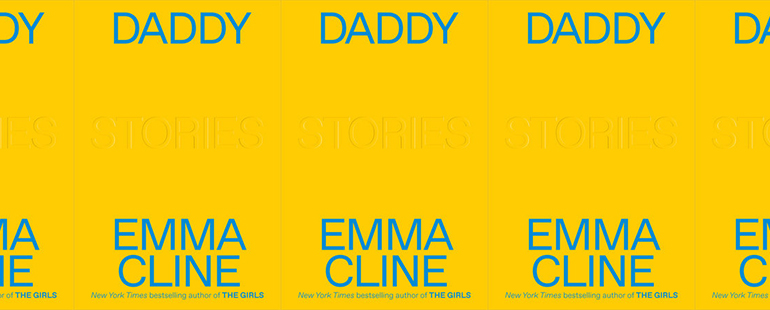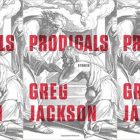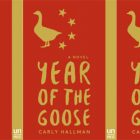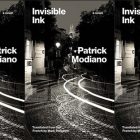Daddy by Emma Cline

Daddy
Emma Cline
Penguin Random House | September 1, 2020
Midway through Emma Cline’s new collection, Daddy, a character wonders, “Who wouldn’t want to imagine that life might have a shape, a formula?” The desire for the power of narrative and the act of rewriting one’s life prevail in the collection, which examines family life and the fraught experience of adolescence by reflecting on beauty and questioning morality.
Cline’s debut, The Girls, was one of the most acclaimed novels of 2017, praised for its startling plot and hypnotic language. An act of historical revision, the novel tells the story of the notorious Manson family from a woman’s perspective—Evie, a bored teenager, longing for a sense of family, who wanders almost absentmindedly into the clutches of a Manson-like cult. In Cline’s hands, the sensationalist material becomes a provocative tale of corruption and abuse; with her vivid recreation of the frenzied cultural and political atmosphere of Northern California in the 1960s, she historicizes the classic bildungsroman into something arresting and seductive.
The Girls demonstrated Cline’s thematic interest in obsession, paranoia, and subtle acts of violence, so it’s no surprise that her slim new collection deals with similar themes. Daddy investigates the shadier corners of the human experience, exploring the fault lines of power between men and women, parents and children, and the past and present. Cline deftly interrogates masculinity and the fates of broken relationships, examining violence on both a societal and personal level. In one story, a washed-up movie director meets up with an old, successful friend and attempts to confront some ugly realizations he’s had about his son who is following in his footsteps. In another, a young couple navigates a pregnancy while living with a friend, soon realizing their third roommate isn’t who he had initially appeared to be. At the core of these stories is the idea of control, similar to the sort of re-writing apparent in The Girls: many of the characters in Daddy are frequently denied agency, or lord it over others, seeking to control bodies and twist narratives.
Cline’s prose is subtle and sophisticated and, as always, her language does heavy work establishing a sense of atmosphere. Impressions of Los Angeles often run through the stories like a connective thread. “Cars the color of melons and tangerines sizzles in cul-de-sac driveways,” she writes in the story “Marion.” “Dogs lay belly-up and heaving in the shade.” We’re left with a sense of marginal existence; this isn’t the glitz of the city itself, but the faintly forgotten environment, reminiscent of a Hopper painting, of its boundless suburbia.
It’s these seemingly dull peripheries that provide a canvas for her characters’ desire for narrative control. In “What Can You Do with a General,” one of the collection’s most arresting stories, we encounter a family narrative that gradually faces erosion. Told from the perspective of a father who, it’s slowly revealed, has been abusive, the story functions as an elegy of sorts, with the father recalling the control he once wielded and that has now disappeared: “He didn’t even like dogs inside the house,” Cline writes. “Now here he was, shuffling after Zero while he sniffed one tree, then another.” Resentment and anger flutter under the surface of his thoughts.
As we begin to comprehend the reality of the relationship between the father and his children, a harshness surfaces where sentimentality and softness should be. At one point, as the children are helping their mother learn how to use a music streaming service, the father nearly blows up at his wife: “[He] had the impulse to grab the phone, smash it . . . she didn’t remember any of the good things.” Cline’s control here is stunning and insidious; we see how the father’s resentment engenders a parallel narrative of the family’s past, living in an alternate history filled with only “the good things.” Our initial willingness at the story’s start to believe the father’s version of events mirrors the ease with which he’s able, though abuse and the ravaging force of his anger, to erase their collective past.
This urge to wipe away one’s past and start anew also appears in “Los Angeles,” a California coming-of-age story. The story follows an aspiring actress as she tries to survive in the city, hoping her life will one day coalesce with meaning. In order to endure the monotony of her young adulthood, Alice tells herself stories about her own life, at one point describing how she “dramatizes incidents . . . so that everything took on an ironic, comical tone, their lives a series of encounters that happened to them but never really affected them, at least in the retelling.” Throughout Daddy, characters gain power precisely through this sort of apathy, spinning a lack of agency into ownership by telling stories—to themselves and to others. Alice makes this clear by the end of the story when she tells us that the misery she’s living through—the brokenness, aimlessness, sense of failure—“had been bearable because it would become a story, something condensed and communicable. Even funny.” With this, Cline winks at the reader—after all, here we are, reading the very story of Alice’s life. Though she hopes that her misery be taken lightly, perhaps it’s this very acknowledgment of such paradox that makes it all the sadder.
Cline’s exploration of story-writing takes center stage in “Menlo Park,” which follows a failed-writer-turned-ghostwriter, and the resentment he has for his subject, a successful tech entrepreneur. Though Arthur’s writing aspirations have, depressingly, led him to such a job, he consoles himself with the fact he can shape someone’s else life: “At least Arthur got to tell his story,” Cline writes. “Put it all in one place, link it together, so whatever happened in his life seemed to beget the next thing that happened, step after step in one long and glorious ascension.” By the end, Arthur sees how he can take the pieces of his boss’s life and massage them into the shape of something better, a tale of success and perseverance far better than the reality of life. With this, Cline speaks to the purpose, and power, of fiction—that its pleasure comes in shaping and experiencing a life not our own, that often, it’s someone else’s life we find most compelling.
Indeed, the stories in Daddy are powerful and compelling, but Cline manages to provoke us with just the title of this collection alone. Many of the stories are grounded in male authority and their twisting of reality—the word “daddy” alludes to a sentimentalized figure of authority, and by referring to a father figure as “daddy,” a child romanticizes the reality of the paternal relationship. There’s a sense of stubbornness to this romanticizing, that we see a relationship, or lives, in certain ways that are then difficult to shed. In adopting it as the title of her collection, Cline seems to comment on the ability of fiction to mold how we see the world—though ultimately she comes to the conclusion that this sort of shaping can only take us so far. When, late in the book, a character has a significant realization—“Maybe the real problem was that you couldn’t ever make something different, that you couldn’t make, say, a house. Even if you replaced all your shitty boards with new boards, after all that work, you still had a boat”—we can sense Cline suggesting this might be the nature of fiction. That, ultimately, it must give way to reality.



